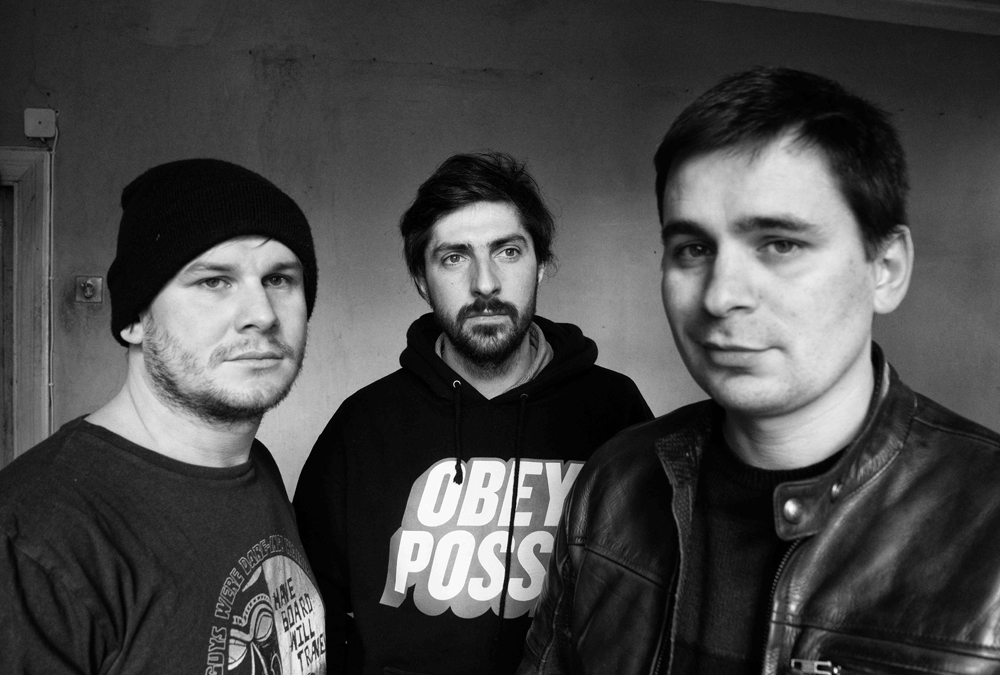Documentaries Don’t Need To Compete With News
In the history of every uprising, there is bloodshed. The noble search for freedom and change, almost certainly turns to violence and chaos. The events during the Winter of 2013-2014 in the Ukraine were no different.
In the history of every uprising, there is bloodshed. The noble search for freedom and change, almost certainly turns to violence and chaos. The events during the Winter of 2013-2014 in the Ukraine were no different. All Things Ablaze is a documentary set right in the epicenter of a battle in which the good and the bad blurred. While covering the events as photojournalists, Oleksandr Techynskyi, Aleksey Solodunov and Dmitry Stoykov decided to make their first feature length documentary that won the Best Eastern European Documentary at DOK Leipzig in 2014 and continues to tour many countries.
Techynskyi screened the film in Brussels under the program of Ukraine On Film Way to Freedom hosted by Bozar, and shared exclusively with us his experience as a novice director and of shooting in a conflict zone in the middle of his hometown.
 Film directors: Aleksey Solodunov (left), Dmitry Stoykov (center) and Oleksandr Techynskyi (right)
Film directors: Aleksey Solodunov (left), Dmitry Stoykov (center) and Oleksandr Techynskyi (right)
Interview with Oleksandr Techynskyi, director of All Things Ablaze awarded Best Eastern European Documentary at DOK Leipzig 2014:
Do you find your film to be a critical stand towards the events of Maidan?
“People have different opinions, different positions. A lot of them find this film to be an unpleasant critique to the events of Maidan. We have lost some friends after making it. You see, in the Ukraine people prefer to see things in black and white. The Revolutionaries were the white shiny knights, and the Cops were just an army of beasts, the dark bad side. But for me this is not true, because inside the battle as you see in the film, everything was mixed, everyone behaved like beasts.”
Who is the main character of this film?
“We don´t have protagonist, violence is the main character. There is no hero, the situation is the hero, violence is the hero. We were not in real contact with the people on the street, nothing more than a 5-minute conversation. Violence is like a disease. People were coming to the Square to support, but they didn´t know what to do. They come to cook, to help with the camp, and then someone threw one stone, and then two, until there were 100,000 people throwing stones. It does not distinguish your education level or where your parents come from. Violence comes, and takes you like an infection. Although there are some immune to it, very few are.”
Access is a big theme in the film; the camera seems to be everywhere. Was this worked with your constant present in the place? Did both sides allow you to film everything as they recognized you?
“No, it´s about understanding the moment, asking yourself constantly can you or can´t you film the situation. As you see, there was a few moments were cops were shouting at us “don´t shoot,” same with the rebels. But you always can understand if they are serious or not, and assess what could happen if you continue shooting. You need to take important decisions immediately.”
How was the experience of working with two other directors?
“There are three directors involved because all of us were out shooting in the street. It was made by three people, but the editing process and the narrative was done by me. I took responsibility to front this project, to answer the tough questions.
During the shooting, we had independence (…). We intended to cover the situation from different angles, but sometimes we were in the same spot.”
Is your own political opinion in the film at all?
“I was there to do a job, which was to shoot. We quite often get asked if we were helping the wounded, and we did not. Some people were there to fight with the police, to throw stones, other to help in the camp. We were there to film, to cover the events. And to be honest, I don´t have a political position besides wanting to be part of the EU, there is no discussion for me. But I trust no one, no parties, no one.”
During the shooting, did you confront yourself or your fellow directors with ethical questions about what should be filmed and how?
“There were no ethical questions. If someone is committing a crime, there is no sense to ask which side he is on. We just shoot it.”
Are there too many films about Maidan, in your opinion?
“The more the better I think. There are 5 big productions in the Ukraine alone, that is not a lot. But watching all of these films you can try to understand what happened from different points of views, and make your own.”
What separated your film from the others like "Winter on Fire" or "Maidan"?
“I haven´t seen Winter On Fire, but it seems to me that the director (Evgeny Afineevky) took a very clear position, on the rebels´ side. I did see Loznitsa´s film (Sergei Loznitsa, “Maidan”) and still need to think a little bit about this film. It´s a strange feeling, because I still feel a little bit knocked out after all that happened.”
Knocked out in which sense?
“I can´t really understand what happened, why, who, when. I don´t believe on the given explanations, they are all hard to believe. To this day, two years have passed, and we still don´t have an investigation on a governmental level. Nobody is in jail, apart from some street cops, but they were following orders. There are thousands of questions, but no answers.”
Did you film serve to answer some of these questions?
“I think there is no simple answer, just questions. Our film is a film filled with questions, no answers. It would have been nice to have some answers, but I don´t believe we will ever know the truth.”
What did this film teach you?
“I learned that I can do conflict zones, but it also showed me that I can make films that people are interested in watching, at least for now. My fellow directors have retired from filming completely for now too. For the Ukraine, I really don´t know. I don´t feel victory, what did we win? There are now lots of heroes, but I just see dead people. Street revolutions don´t take you to real changes, they happen inside our heads, they are not real. Throwing stones does not lead you anywhere.”
What are the challenges of making a film about an event that was also covered by the people themselves and was broadcast through the Internet?
“Internet is an ocean of information without anybody responsible for it. I still believe in the necessity of having someone behind the information, a person that you trust or you don´t. Our film and others made about Maidan, serve history as a piece of information with responsible authors who you can confront.”
How was the film funded?
“This was funded by us. I was a fixer for a long time and Alexei had also some money available. We used our own equipment; I found an editor who could help us and told everyone maybe it might work, and it did. We made money, we paid everyone involved and even made some money. I bought myself a new bike.”
How did the film find distribution?
“After the events ended and we decided to make the film, everything sort of just happened. Much of the work was laid out since we were editing the material daily. After watching Sorrentino´s film “The Great Beauty,” I was inspired to find a structure; I don´t know why. It took about 10 days to have a final cut. After we applied to DOK Leipzig as a World Premiere and won the prize, did a few more festivals, and then the distributors found us.”
Do you take advantage of the fact that Maidan was a “Hot Topics” in festivals last year?
“Documentaries don´t need to compete with the headlines of the news. There are many important things to film that are not in the media, like love, death, relationships. Far much interesting to follow than these “hot topics”. We didn´t want it to happen, but it did and we were there covering it. Maybe it was luck, but we were prepared and trained, so when it arrived, we rode it out.”
Interview by Mariana Cadenas







